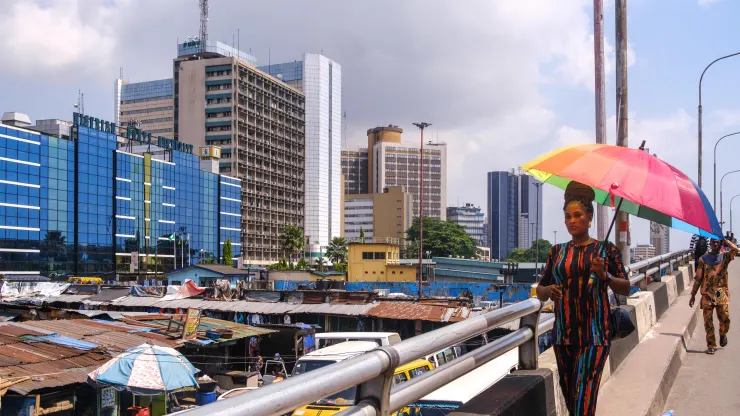In a decisive move to combat the twin challenges of soaring inflation and a prolonged currency crisis, the Central Bank of Nigeria (CBN) has announced a substantial increase in its key interest rate. On Tuesday, the bank declared a 200 basis point uplift, setting the new rate at an unprecedented 24.75%, up from the previous 22.75%. This adjustment marks the second successive rate hike, following a substantial 400 basis point increment in February. Nigeria, Africa’s most populous nation and largest economy strives to navigate its current financial turmoil.
Governor Olayemi Cardoso, in a statement to the press, underscored the central bank’s determination to persist with its tightening policy to curb the country’s rampant inflation. “Policymakers believed they need to continue tightening to tame runaway inflation,” he explained, signaling the CBN’s steadfast commitment to restoring economic stability.
The inflation crisis in Nigeria has reached alarming levels, with the annual rate accelerating to 31.7% in February, a stark increase from 29.9% in January and the highest recorded since April 1996. This relentless inflation surge has eroded consumer purchasing power and significantly impacted the nation’s economic landscape.
David Ojomolo, an Africa economist at Capital Economics, views the CBN’s latest policy action as a critical step towards addressing the inflation dilemma and mending the bank’s credibility. He suggests that the decision, although less aggressive than the prior adjustment, indicates a balanced approach toward managing growth concerns and inflationary pressures. “The fact that officials delivered a larger-than-expected hike suggests that the fight against inflation is taking precedence,” Ojomolo noted, emphasizing the central bank’s prioritization of inflation control over growth implications.
Nigeria’s naira has also witnessed a dramatic decline, depreciating approximately 70% against the U.S. dollar over the past year. Despite hitting an all-time low in late February, recent measures have seen the naira regaining stability, partly attributed to the CBN’s efforts to clear a significant backlog of import transactions.
As the CBN continues its aggressive stance against inflation and currency devaluation, the outlook suggests further tightening measures in the near term. Capital Economics anticipates an additional 100 basis point hike in the upcoming May and July meetings and a gradual conclusion to the bank’s rate hike cycle later in the year.
The Central Bank of Nigeria’s bold move to raise the interest rate is a testament to its unyielding resolve to combat inflation and restore economic equilibrium. While the path to recovery presents numerous challenges, the bank’s proactive measures signify a hopeful stride toward stabilizing Africa’s largest economy. As the CBN navigates through these turbulent waters, the impact of its policies on the broader economic landscape remains to be seen. Still, the commitment to securing a sustainable financial future is clear.






















